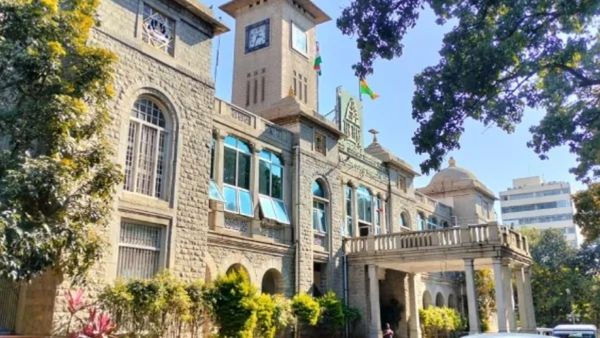Karnataka’s real estate sector is poised for a transformational shift with the introduction of stringent new regulations under the landmark Greater Bengaluru Governance (GBG) Act, 2024. The government’s recent directives not only tighten compliance around property documentation but also announce the phasing out of the long-debated B-Khata system for new properties after September 30, 2024. This reform promises to bring nearly six lakh Bengaluru properties into a formal tax and regulatory framework, aiming to enhance transparency, curb illegal constructions, and ensure orderly urban growth in one of India’s fastest-expanding metropolises.
Karnataka’s new property regulations under the Greater Bengaluru Governance (GBG) Act signify a much-needed paradigm shift in how urban land and real estate are governed in the fast-growing city. For decades, Bengaluru’s real estate sector has grappled with legal ambiguity, inconsistencies in land records, and challenges related to infrastructure development. The move to phase out B-Khata certificates for new properties and push for A-Khata compliance aims to eliminate the gray market of unofficial property documentation, thus providing long-term stability and security to property owners and investors.
B-Khata properties, often considered unofficial or partially legalized, have long been a source of confusion and disputes in Bengaluru. While these certificates allowed owners to pay property taxes, they did not confer full legal ownership or ensure clear titles. This lack of legal clarity often resulted in difficulties when owners attempted to sell or develop their properties. By disallowing B-Khata for any property constructed after September 30, 2024, the Karnataka government aims to curb the proliferation of ambiguous or illegal building constructions and reinforce proper urban planning and documentation protocols.
The GBG Act’s provisions also empower authorities to treat private roads linked to vacant plots as public roads for planning and development purposes. This legal recognition will help resolve infrastructural bottlenecks that have traditionally impeded neighborhood expansions and connectivity. Property developers and civic planners can now leverage this provision to create well-integrated layouts with assured pothole-free access, better drainage systems, and enhanced civic amenities, fostering more liveable communities.
A significant benefit of the regulatory overhaul lies in the simplification of land conversion processes for agricultural plots within Bengaluru’s city limits. Previously, landowners had to navigate cumbersome bureaucratic hurdles involving multiple approvals, including those from the Deputy Commissioner. By enabling conversion under the Revised Master Plan (RMP) and Karnataka Town and Country Planning (KCTP) Act with reduced bureaucratic barriers, the government accelerates the development pipeline, ensuring that Bengaluru can better cater to its growing population’s housing and commercial space requirements.

Phasing Out B-Khata Certificates for Newer Properties
Central to the new regulations is the decision that properties constructed post-September 30, 2024, under the Bruhat Bengaluru Mahanagara Palike (BBMP) jurisdiction will no longer be eligible for B-Khata certificates. B-Khata, often viewed as a grey area documentation that neither confers full legal ownership nor guarantees title rights, will be replaced by stringent requirements mandating A-Khata certification for recognition as legal properties. This move addresses decades of ambiguity and legal uncertainties that have plagued Bengaluru’s real estate market, facilitating a more accountable and investor-friendly environment.
Integration Under the Greater Bengaluru Authority and GBG Act
With the enactment of the GBG Act and the parallel dissolution of BBMP, properties previously outside the formal system are expected to be incorporated under the Greater Bengaluru Authority’s purview. Section 212 of the GBG Act empowers authorities to classify private roads adjoining vacant plots as public roads for planning purposes, resolving longstanding infrastructural challenges. The Act also allows conversion of agricultural lands within the city’s Revised Master Plan (RMP) to urban use without the prior Deputy Commissioner’s approval, streamlining processes while retaining essential conversion fees and approvals under the Karnataka Town and Country Planning (KCTP) Act.
Urban planners and civic administrators anticipate longer-term benefits from the GBG Act—enhanced property tax collections, better urban infrastructure funding, and a reduction in legal disputes over property rights. The Act empowers officials to treat private access roads as public for planning purposes, further boosting integration and service delivery in previously fragmented neighborhoods. The streamlined conversion of agricultural land for urban use, once a bureaucratic quagmire, should now become a quicker, more accountable process fueling orderly growth around Bengaluru’s periphery.
Yet, the success of these bold reforms pivots on consistent enforcement, digital record-keeping, and public outreach. Bringing over 600,000 properties into the formal tax net is a herculean task. The government must continuously engage with stakeholders, offer intuitive platforms for compliance, and run campaigns highlighting the personal and civic advantages of clear documentation. Only with sustained commitment—by both authorities and citizens—can Bengaluru’s property market become the transparent, well-regulated foundation the city needs for its continued rise as a global urban powerhouse.
Legalization and Regularization of Existing Properties with Conditions
The government’s policy extends limited relief to existing buildings with B-Khata, particularly non-multi-unit structures and complexes with BESCOM approval constructed before the September 30 cut-off date. These properties may apply for A-Khata certification subject to zoning compliance and permitted planning norms. Notably, the government clarified that B-Khata does not legalize ownership or grant immunity from penalties under the GBG Act or other laws if violations are detected. This nuanced approach balances protecting current property owners with enforcing stricter governance standards moving forward.

Impacts on Vacant Plots and Subdivided Lands
Vacant plots holding B-Khata status have been excluded from the regularization window, signaling a tough stance on unapproved land developments. Owners of lands converted under Section 95 of the Karnataka Land Revenue Act but lacking approvals under the KCTP Act must secure those permissions to be eligible for A-Khata certification. This delineation reaffirms Karnataka’s intent to weed out speculative land holdings and foster sustainable urban planning aligned with master development goals.
Implications for Property Buyers and Real Estate Market
Buyers of properties with valid A-Khata will now experience greater legal clarity and assurance, which is expected to boost investor confidence and market stability in Bengaluru’s red-hot real estate sector. Conversely, properties without A-Khata or constructed after the deadline without compliance face heightened scrutiny, potential penalties, and obstacles to financing or resale. Real estate developers and brokers will need to adapt swiftly, prioritizing transparency, timely approvals, and adherence to planning regulations to stay competitive.
Accelerated Urban Development and Governance Efficiency
The GBG Act’s provisions are designed to eradicate longstanding bottlenecks in property documentation and urban infrastructure management. By legally empowering authorities to recognize private roads as public and simplifying land conversion procedures, the Act aims to catalyze better connectivity, planned growth, civic services, and tax revenues. These structural reforms tackle both the supply-side and governance challenges for a metropolis grappling with rapid population influx and sprawling urbanization.
Challenges and the Road Ahead
While the GBG Act and related regulations represent a progressive leap, implementation will demand robust institutional capacity, stakeholder cooperation, and transparent communications to minimize disruption to homeowners, developers, and municipal authorities. Challenges such as resistance from entrenched interest groups benefiting from the current lax environment, the technical complexities of mass regularization, and the need for digital infrastructure to track and manage property records will need sustained policy focus. Nevertheless, Karnataka’s decisive steps promise to set new benchmarks for urban governance reform in India’s real estate domain.
For existing constructions on unauthorized lands or layouts, the government’s regulations offer a ray of hope by allowing certain non-multi-unit properties to attain A-Khata status if they comply with zoning and master plan provisions. This conditional regularization provides legal recognition and property tax legitimacy to a section of homeowners who might otherwise face penalties or demolition threats. However, multi-unit residential complexes bear stricter scrutiny, reaffirming the state’s commitment to combat illegal apartment developments.
Vacant lands remain a tricky issue under this new regime. Properties lacking the required approvals under the Karnataka Land Revenue Act or KCTP Act will not receive any form of postcode authentication or taxation formalities without first satisfying relevant legal criteria. By tightening the eligibility for khata certification on such lands, Karnataka signals a toughened stance against speculative landholding and unauthorized land division practices that often distort market dynamics and hinder planned urban expansion.

These sweeping changes inevitably impact real estate buyers, sellers, and financial institutions. A-Khata certification now assumes heightened importance as a prerequisite for obtaining home loans, property resale, and development approvals. Banks and lending agencies are likely to refine their due diligence processes to verify the status of khata certificates strictly, adding rigour and safeguarding investments. Potential homeowners must now exercise greater caution and demand transparent property records before executing transactions.
For the government, these reforms represent an opportunity to expand the tax base significantly by formalizing previously unregistered or partially registered properties. The consequent increase in property tax revenues could enhance the municipal corporation’s capacity to fund infrastructure projects, waste management systems, public transport, and smart city initiatives. Improved fiscal health will enable more sustainable urban governance and elevate the overall quality of life for Bengaluru residents.
Lastly, the success of these ambitious reforms will depend largely on robust implementation and continuous stakeholder engagement. The government needs to invest in digital record-keeping and form user-friendly platforms to facilitate property regularization and compliance monitoring. Equally important is addressing skepticism and resistance from vested interests accustomed to the opaque status quo. Public awareness campaigns, transparent communication, and streamlined grievance redressal mechanisms will be necessary complements to legal frameworks for Karnataka’s real estate sector to transform into a model of orderliness and trustworthiness.
Follow: Karnataka RERA

